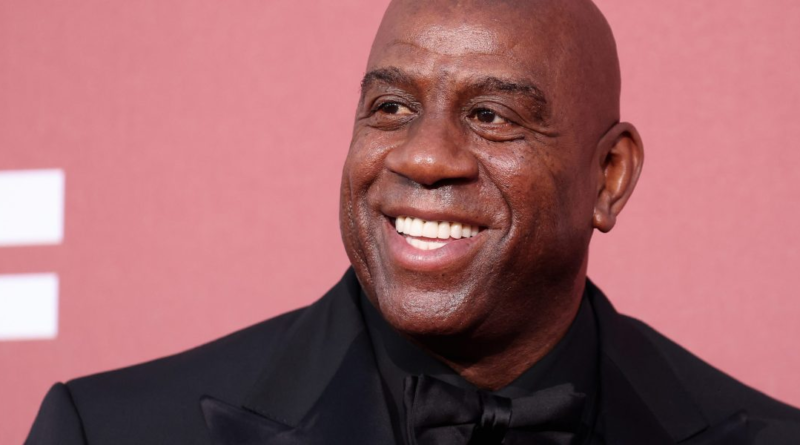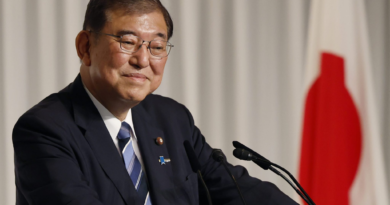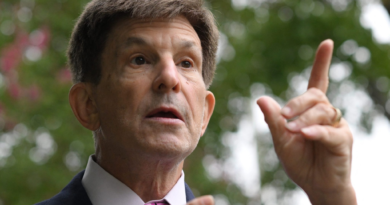NBA legend Magic Johnson says playing at the 1992 Olympics after his HIV diagnosis ‘was the greatest moment’ of his life
In a recent interview with the BBC’s Katty Kay, NBA legend Earvin “Magic” Johnson recalled his journey with HIV after announcing his diagnosis in 1991.
“Everything was going well, and then this devastating news comes,” Johnson told Kay. At the time, Johnson was a star player on the Los Angeles Lakers, leading the team to five championship wins between 1980 and 1988.
Johnson shared with Kay the advice his doctor gave him: Be positive and accept you will have HIV for the rest of your life; take your medicine every day; and exercise. “Do those three things, you give yourself a chance,” he recalled being told.
Johnson, now 64, had just married to Cookie Johnson, who was pregnant at the time, two months before announcing his HIV diagnosis, Kay pointed out in the interview.
“The longest ride I ever had in my life was going home to tell Cookie I had HIV,” Johnson said. She slapped his face when he told her, but assured him that they would work through it together.
His diagnosis not only threatened his personal life, but his career, too. The 1992 NBA All-Star Game and Barcelona Olympics were approaching—meanwhile, players didn’t want to be on the court with Johnson, he said. They feared getting HIV, too, as stigma and misinformation around the disease and its transmission remained high in the early 1990s.
The late David Stern, former commissioner of the NBA, helped change Johnson’s trajectory. Stern’s decision to allow Johnson to play in the 1992 All-Star game proved that being around an HIV positive person was safe—and that Johnson was still at the top of his game.
Stern’s decision “not only changed the basketball players’ minds, it changed the world,” Johnson told Kay.
Stern’s support for Johnson’s career continued into the 1992 Olympics, where he personally picked Johnson to be on the team of 10 representing Team USA, he told Kay.
“When I got that call, that I was one of the guys to play, I was screaming and hollering,” Johnson said in the interview. “It was the greatest moment of my life, especially having come off retirement and HIV [diagnosis]. It was such a great honor to represent my country, the Lakers, my family.”
That ‘Dream Team,’ as it was called, would go on to dominate the Olympics, going undefeated to win gold.
But while Johnson was riding the high of the Games, he struggled financially. Professional athletes often depend on sponsorships to make a living, and after sharing his diagnosis, several sponsors dropped him, he said.
Johnson didn’t regret going public with his diagnosis, though. “I felt good about it,” he told Kay. “I wanted to help people.”
He met with people who had been diagnosed with HIV and were afraid to share the news, while educating others who may about the condition.
In 1991, Johnson founded the Magic Johnson Foundation, whose mission includes developing programs that support AIDS/HIV awareness, treatment and prevention.
“I was on a mission,” Johnson said.
Johnson has become a central voice in destigmatizing HIV and AIDS. Kay said that she called Dr. Anthony Fauci, former director of the National Institute of Allergy and Infectious Diseases. He told her that “Johnson did more than almost anyone to lift the stigma” around AIDS.


 This year in odd news: The weirdest headlines from the Houston area in 2022 – KPRC Click2Houston
This year in odd news: The weirdest headlines from the Houston area in 2022 – KPRC Click2Houston

